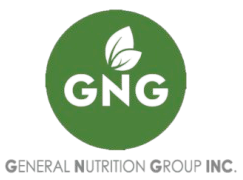In developed countries, the rate of viral infections tends to be higher than that of bacterial or fungal infections, and the harm caused by viruses is often more significant. This is because viruses are the most common causes of illnesses like colds and flu, which spread easily through person-to-person contact in densely populated and highly mobile societies. Unlike bacterial and fungal infections, many viral diseases lack straightforward treatments like antibiotics or antifungal medications, making prevention and management more challenging. Additionally, some viruses can lead to severe complications or chronic conditions, further increasing their impact on public health in these regions.
When the immune system is strong, it can defend the body against viruses in two main ways. First, it may prevent the virus from causing any noticeable symptoms, allowing the person to remain completely unaware of the infection. Second, if the virus does manage to cause illness, the immune system can respond swiftly and effectively, resulting in only mild, short-term symptoms such as those associated with a common cold or flu. In both cases, a robust immune system minimizes the impact of the virus, either by eliminating it before symptoms develop or by significantly reducing the severity and duration of the illness.
The difference between natural products that enhance immunity and those that fight infections lies in their primary functions:
- Immune Builders: These are designed to strengthen the immune system overall. They increase the sensitivity and responsiveness of immune cells, improve the ability to recognize and eliminate pathogens, and enhance the efficiency of the immune response after activation. These products focus on improving the body’s natural defense mechanisms in a broad and sustained manner.
- Antivirus: These specifically target infections. They directly attack and neutralize viruses, preventing them from invading or replicating in the body. These products are more focused on immediate intervention against specific threats rather than general immune support.
While some natural remedies may have dual benefits, these distinctions highlight whether a product works to strengthen long-term immunity or directly combat existing infections.
Immune-building products strengthen your immune system, increase the sensitivity of your immune response to infections, heighten its active response, improve the “catch-and-destroy” function toward invading pathogens, and enhance the efficiency of resolution following immune activation.
Here are some examples of immune builders:
- Astragalus
- A traditional Chinese herb rich in antioxidants that support respiratory tract health and overall immune function.
- Promotes the production of immune cells, enhancing the body’s ability to fight off infections, especially during stress-induced immune suppression.
- Elderberry
- Packed with antioxidants and immune-supportive compounds.
- Protects against inflammation and serves as a restorative tonic for the immune system.
- Often used to prevent and recover from colds and flu due to its immune-strengthening properties.
- Vitamin C
- A key antioxidant that boosts the production and function of white blood cells.
- Supports the formation of antibodies, adrenal function, and cellular repair.
- Plays a crucial role in strengthening the immune system and reducing the duration of illnesses.
- Maitake
- A medicinal mushroom rich in immune-regulating beta-glucans.
- Enhances the activity and number of immune cells like macrophages and natural killer cells.
- Strengthens the immune system by improving its ability to detect and eliminate pathogens.
Antivirals directly target a virus, puncturing and destroying its ability to survive, and prevent its ability to invade the body and replicate.
Here are some examples of Antivirals:
- Vitamin A
- Plays a crucial role in enhancing immune function and epithelial integrity, which serves as a barrier to infections.
- In higher, safe doses, it has been shown to exhibit broad-spectrum antiviral effects by interfering with viral replication and reducing viral loads.
- Berberine
- A bioactive compound derived from plants like goldenseal.
- Effective in reducing viral levels, inhibiting the replication of influenza strains, and blocking the attachment of viruses to human cells, preventing their invasion.
- Andrographis
- A potent antiviral herb known for its effectiveness against respiratory infections.
- Helps reduce the severity and duration of conditions like colds, flu, sinusitis, and bronchitis by interfering with viral replication and modulating the immune response.
- Echinacea
- A widely used herb with both immune-supportive and direct antiviral actions.
- Inhibits viral multiplication, particularly in cases of colds and bronchitis, and significantly shortens the duration and intensity of viral infections.
